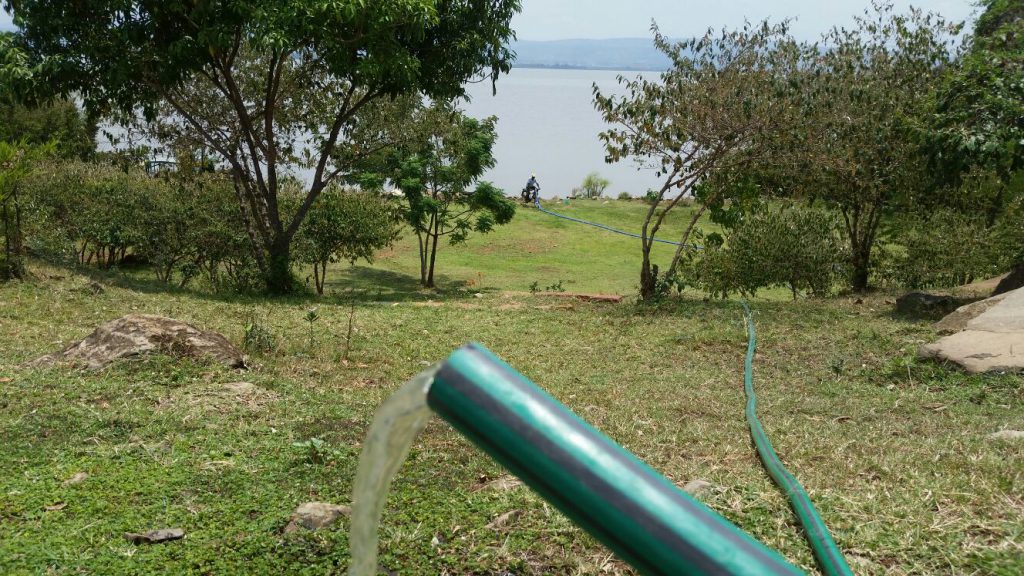Most farmers in Africa are seasonal (rain-fed) farmers and depend heavily on the rain seasons. But these farmers are now facing a change in rainfalls as a result of climate change. Seasons are not the same anymore. These changes express themselves in droughts as well as in heavy rains and storms and have huge implications on the access to and traditional availability of water.

The farmers’ inability to adopt to climate change results in the fact that the previous largely self-sustainable peasant farmers, are not anymore able to sustain (feed) themselves with crops from their fields and sell surpluses of crops to the market. In this way creating a downward spiral of poverty and food shortages.
Kenya and Uganda with the world’s 2nd largest lake and its associated river system, is not dry, despite its long and increasingly unpredictable dry seasons. This water is never fully utilised, but the potential is massive to create a year-round combination of agriculture and forestry (“agroforestry”) as a more sustainable way of income generation and diverse, nutritional agriculture yields.
The problem however is moving the water. Electricity is scarce, fuel is expensive — at about a day’s wage for a liter — so women and children spend hours a day to fetch water for the household and farm.
The idea for a bicycle-powered water pump was born in the many years Cycling out of Poverty – CooP-Africa has been equipping farmers with bicycles to improve access to markets, farms and other services and in the many sessions and workshop we had with them. As we are passionate and committed to support these small scale farmers to cycle out of poverty, adapt to climate change and improve food security in the regions we therefor designed the first bicycle-powered water pump at the Green Hub Shop in Kisumu, Kenya in 2018. We have started testing and using it with female-headed farmer families in Kenya. And this pilot project had an immediate impact on saving precious time of the women and their children and increased farming yields. In 2019 we hope to improve on the design of the bicycle-powered water pump and support more farmer families in Kenya and Uganda.

No Comments to "Bicycle-powered water pump in Kenya"